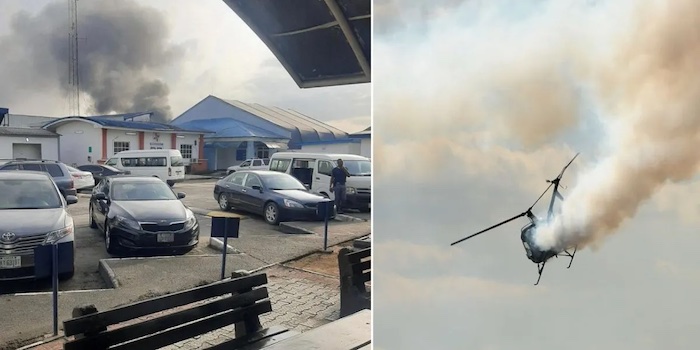Military plane crash, on Friday morning, a helicopter belonging to the Nigerian Air Force crashed and subsequently exploded at the NAF Base in Port Harcourt. According to eyewitnesses, the incident occurred around 7.50 am and it’s not yet clear what caused the crash. One witness reported hearing a loud sound and seeing flames. Fortunately, all five people aboard the helicopter survived with only minor injuries.

The helicopter had taken off on an operation aimed at curbing the activities of oil thieves in Rivers State. The Chief of Air Staff is reportedly on his way to the scene to assess the situation and ensure that everyone is safe and sound.
The NAF Director of Public Relations and Information has since released a statement, emphasizing the inherent dangers of military flying and the importance of adhering to strict safety protocols. While it is still too early to determine the exact cause of the accident, this unfortunate incident serves as a reminder of the risks associated with aviation and the need for continued vigilance and caution.
The incident has brought to the fore the issue of safety in military aviation. The Nigerian Air Force, like other military organizations around the world, operates in some of the most challenging environments, often under difficult weather conditions and in hostile territories. This makes the need for strict safety protocols and well-trained personnel even more critical.
Over the years, the Nigerian Air Force has taken several steps to improve safety in its operations. This includes investing in modern equipment, training programs for pilots and ground personnel, and regular safety audits. However, accidents can still happen, and there is always room for improvement.
The cause of the crash is still unknown, and an investigation is underway. The Nigerian Air Force has promised to release more details as they become available. In the meantime, the incident has generated a lot of interest and concern among the public, particularly those living in areas where military operations are common.



